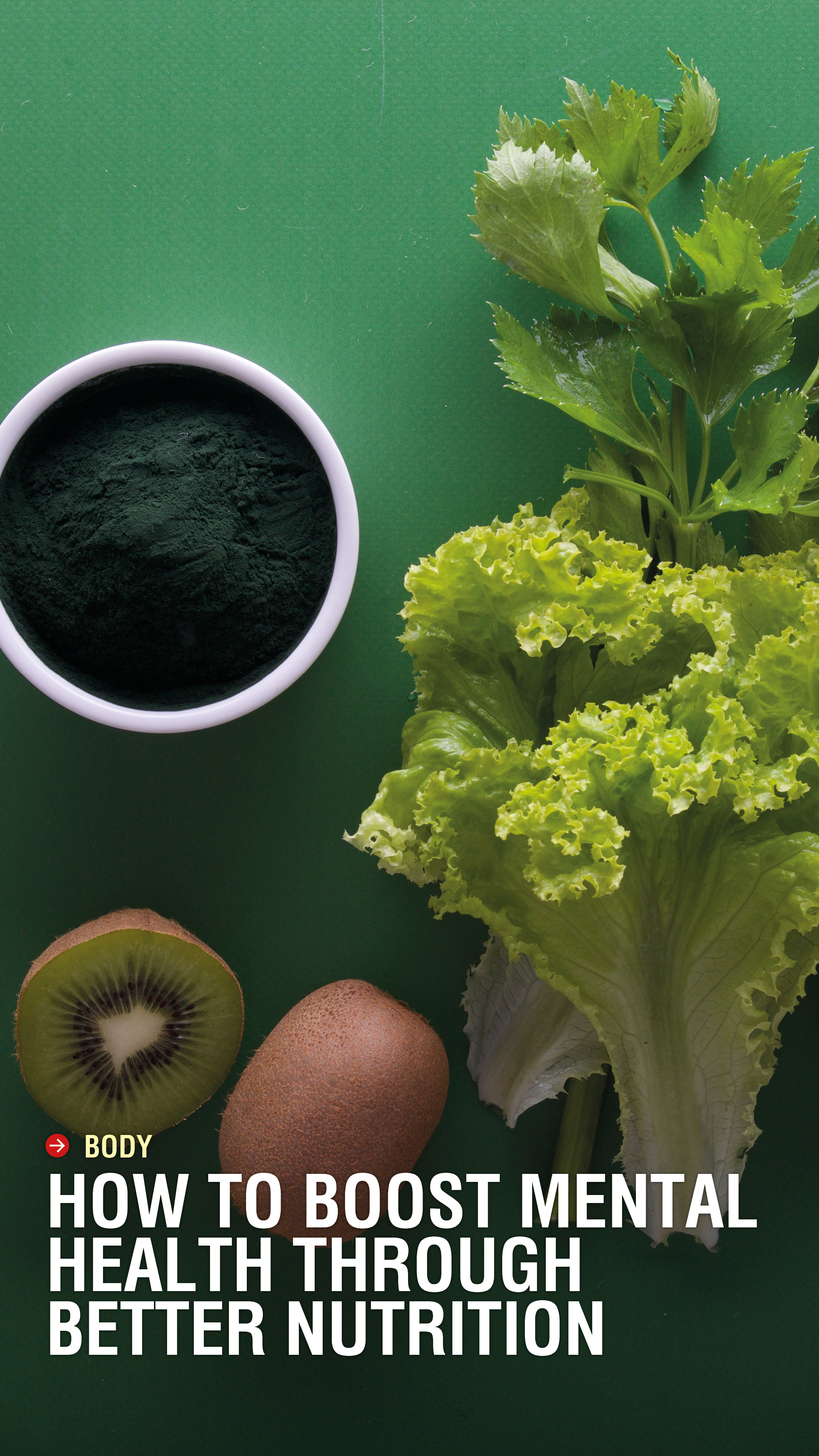How to boost mental health through better nutrition?
The relationship between nutrition and mental health is bidirectional: the foods we eat affect our mental health, and our mental health status affects what and how well we eat.

Like an expensive car, your brain functions best when it gets only premium fuel. Eating high-quality foods that contain lots of vitamins, minerals and antioxidants nourishes the brain and protects it from oxidative stress- the “waste” (free radicals) produced when the body uses oxygen, which can damage cells.
Unfortunately, just like an expensive car, your brain can be damaged if you ingest anything other than premium fuel. If substances from "low-premium" fuel (such as what you get from processed or refined foods) get to the brain, it has little ability to get rid of them.
Diets high in refined sugars for example, are harmful to the brain. In addition to worsening your body's regulation of insulin, they also promote inflammation and oxidative stress. Multiple studies have found a correlation between a diet high in refined sugars and impaired brain function — and even a worsening of symptoms of mood disorders, such as depression.
One reason our food choices affect our brains so strongly is that our gastrointestinal system — or what’s more commonly referred to as “the gut” — is actually very closely connected to the brain.
The gut is home to trillions of living microbes that have many functions in the body, such as synthesizing neurotransmitters that send chemical messages to the brain to regulate sleep, pain, appetite, mood, and emotion.
In fact, there’s such an intricate network of interactions between the two that the gut has been nicknamed the “second brain.” Formally, the relationship between the two is called the gut-brain connection.
Incorporating foods with these vitamins into a diet can help improve brain function and mental health:
- B vitamins: B12 and B9 (folate) are well-known for influencing mental health and mood. B vitamins are necessary to produce neurotransmitters like serotonin and dopamine, which contribute to pleasure and overall mood.
- Iron: Low levels of iron can lead to fatigue, apathy, brain fog, mood swings and depression. Make sure to include oats, raisins, dates, lentils, green leafy, meat and vitamin C rich foods for enhanced absorption.
- Magnesium: This vitamin helps regulate the nervous system. Adding magnesium to a diet can help reduce the risk of depression. Add Magnesium rich foods like fish, pumpkin seeds, dark chocolate, almonds, sesame seeds, leafy greens.
- Omega-3: Fatty acids like omega-3 can contribute to improved mood disorders and neurotransmitter function to boost mental state. Incorporate salmon, fatty fish, walnuts, flaxseed and chia seed
- Zinc helps decrease depressive symptoms so load up on pumpkin seeds, rajma and spinach to balance your mood
- Vitamin C: In addition to boosting the immune system, vitamin C can impact energy levels, mood, anxiety, and mental function.
- Vitamin D: Many mental health conditions have been associated with low vitamin D levels. Adding this vitamin to a diet can help improve brain function and mood.
- Vitamin B12: It allows the body to synthesize a group of nutrients critical for neurological function which in turn regulates depression. Meat and eggs are the main source of B12.
Contrary to what people say, remember exercise is not just about losing weight. Several studies have shown that a regular exercise program can improve mood in people with depression.
Exercise enhances the action of endorphins – chemicals that improve the body’s immunity, reduces pain and improves mood. It also offers health benefits such as lower blood pressure, protection against heart disease and cancer, and boosts self-esteem.
Start with mindful eating, healthy food swaps, incorporating exercise, supplements if needed, breathing exercises, and most importantly sleep & stress management.


